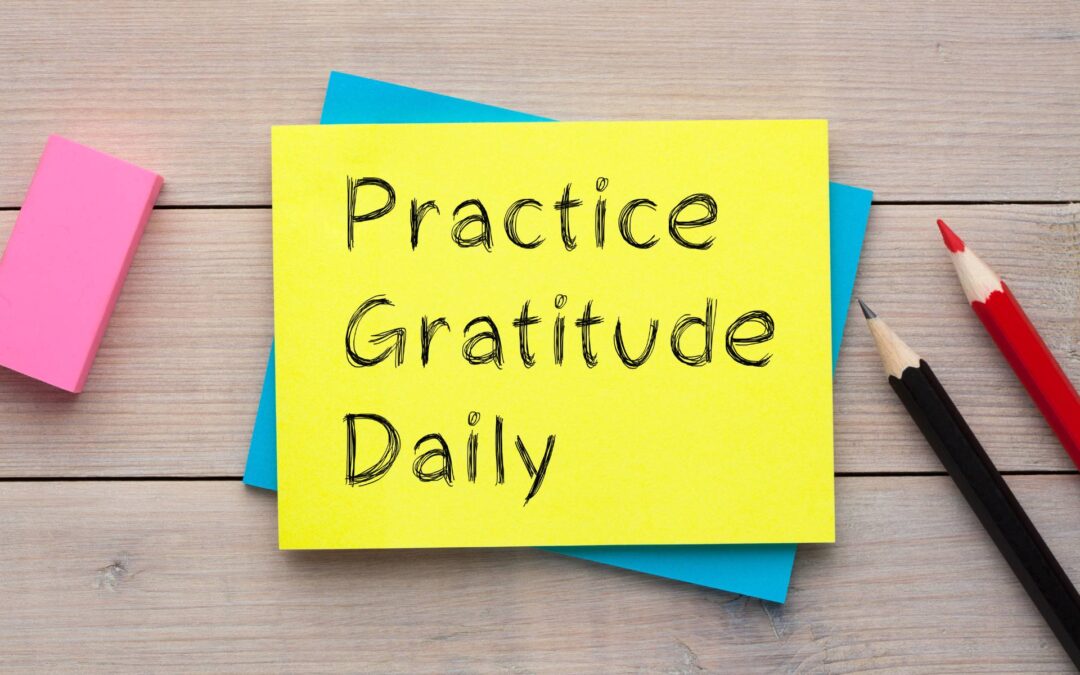I never thought I’d be the type of person to keep a gratitude journal. The idea seemed cheesy and forced to me. But a few years ago, when I was struggling with anxiety and depression, my therapist suggested I give it a try. Little did I know that this simple practice would transform my mental health and overall outlook on life.
As someone who’s battled mental health challenges firsthand, I want to share with you the profound impact that practicing gratitude daily has had on my well-being. I hope my experience can inspire you to give gratitude a chance and potentially reap the same benefits I’ve discovered.
Gratitude Journey Begins
When I first started my gratitude practice, I was skeptical. How could writing down a few things I’m thankful for each day make any real difference? But I committed to trying it for at least a month, jotting down three things I was grateful for before bed each night. At first, it felt awkward and sometimes even difficult to come up with things. But as the days went by, I noticed something shifting.
I started looking for things to be grateful for throughout my day, almost like a game. Suddenly, I was noticing small joys I’d previously overlooked – the warmth of sunlight on my face, a kind word from a coworker, or the comforting aroma of my morning coffee.
The Science Behind Gratitude and Mental Health
As I experienced the positive effects of gratitude firsthand, I became curious about the science behind it. What I discovered fascinated me and validated my personal experience. Research has shown that practicing gratitude can have significant benefits for mental health. A study published in the Journal of Personality and Social Psychology found that participants who kept gratitude journals reported feeling more optimistic and satisfied with their lives.
They also exercised more and had fewer visits to physicians compared to those who focused on daily hassles or neutral events. Another study in the journal Psychotherapy Research demonstrated that practicing gratitude, along with other positive psychology interventions, resulted in decreased depression symptoms and increased happiness
The effects were still present at a six-month follow-up, suggesting that gratitude can have long-lasting impacts on mental well-being.
How Gratitude Rewires the Brain
One of the most fascinating aspects of gratitude is its ability to actually change our brain structure. Neuroscientific research has shown that practicing gratitude can increase the production of dopamine and serotonin, often referred to as the “feel-good” neurotransmitters.
This boost in these crucial brain chemicals can lead to improved mood and emotional regulation. Moreover, a study using fMRI scans found that gratitude practice activated areas in the brain associated with moral cognition, reward, and positive emotion.
This suggests that gratitude doesn’t just make us feel good momentarily; it can actually reshape our neural pathways to promote more positive thinking patterns over time.
Gratitude as a Stressbuster
One of the most noticeable benefits I’ve experienced from my gratitude practice is a significant reduction in stress. When I’m feeling overwhelmed or anxious, taking a moment to reflect on what I’m grateful for helps shift my perspective and calm my racing thoughts. This personal observation is backed by science. Research has shown that gratitude can lower cortisol levels, the hormone associated with stress.
By focusing on positive aspects of our lives, we can activate the parasympathetic nervous system, which helps us relax and reduce the physiological effects of stress.
Improved Relationships and Social Connections
Another unexpected benefit I’ve noticed is how gratitude has improved my relationships. By actively appreciating the people in my life, I’ve found myself becoming more patient, understanding, and empathetic. This has led to deeper connections and more satisfying interactions. Studies support this effect, showing that expressing gratitude can strengthen relationships and increase feelings of social support.
When we express appreciation to others, it not only makes them feel good but also reinforces our own positive feelings about the relationship.
Cultivating Resilience Through Gratitude
Perhaps one of the most powerful effects of gratitude I’ve experienced is increased resilience in the face of challenges. On tough days, my gratitude practice reminds me that there are still good things in my life, even if they’re small. This helps me maintain perspective and bounce back more quickly from setbacks.
Research has shown that gratitude can indeed foster resilience. A study of college students found that those who practiced gratitude reported higher levels of resilience and lower levels of depression and stress.
By focusing on the positive aspects of our lives, we build a psychological buffer against negative experiences.
Tips for Starting Your Own Gratitude Practice
If you’re inspired to start your own gratitude practice, here are some tips that have worked for me:
- Start small: Begin with just one or two things you’re grateful for each day.
- Be specific: Instead of “I’m grateful for my family,” try “I’m grateful for the supportive phone call I had with my sister today.”
- Mix it up: Don’t just list the same things every day. Challenge yourself to find new sources of gratitude.
- Make it a habit: Try to practice at the same time each day to establish a routine.
- Get creative: You don’t have to write in a journal. You could use a gratitude app, share your gratitude with a friend, or even create a gratitude jar.
Embracing Gratitude for Better Mental Health
As I reflect on my journey with gratitude, I’m amazed at how such a simple practice has had such a profound impact on my mental health. It’s not always easy, and there are still days when finding things to be grateful for feels challenging. But the cumulative effect of this daily practice has been transformative.
If you’re struggling with stress, anxiety, or depression, I encourage you to give gratitude a try. It’s not a magic cure-all, and it doesn’t replace professional help when needed. But it can be a powerful tool in your mental health toolkit, helping you cultivate a more positive outlook and resilient mindset. Remember, gratitude is like a muscle – the more you exercise it, the stronger it becomes. So, start small, be patient with yourself, and watch as this simple practice begins to shift your perspective and boost your mental well-being. Your future self will thank you for it.

